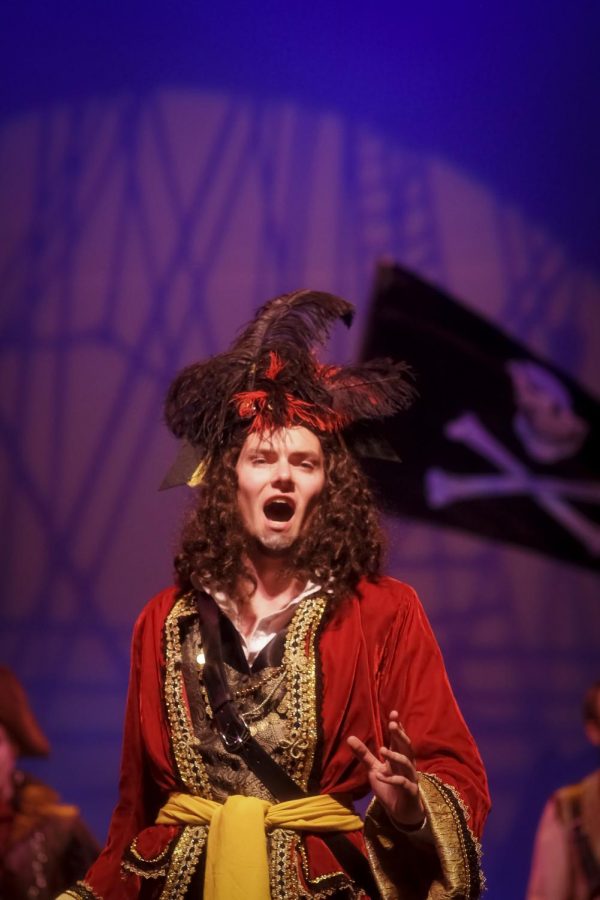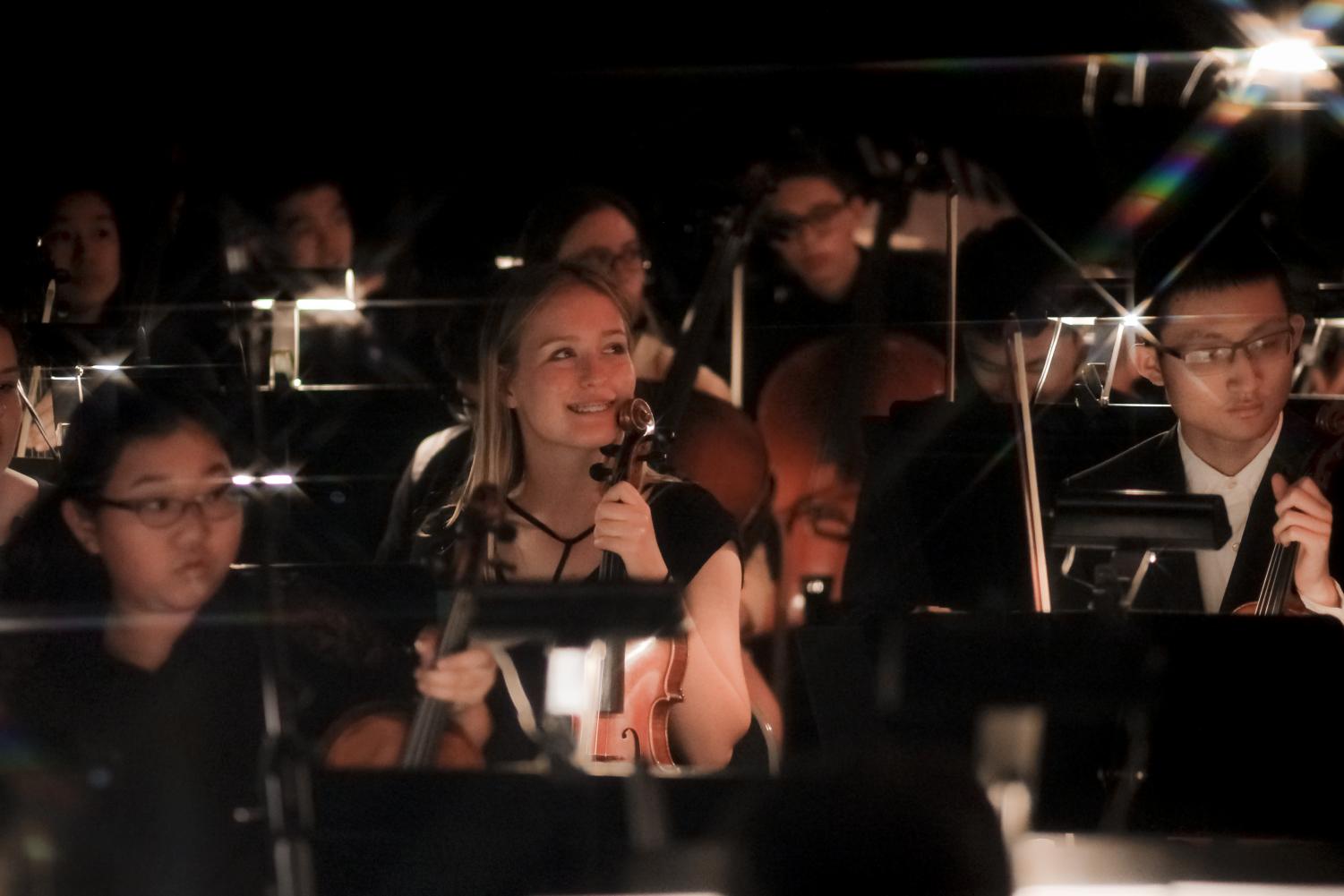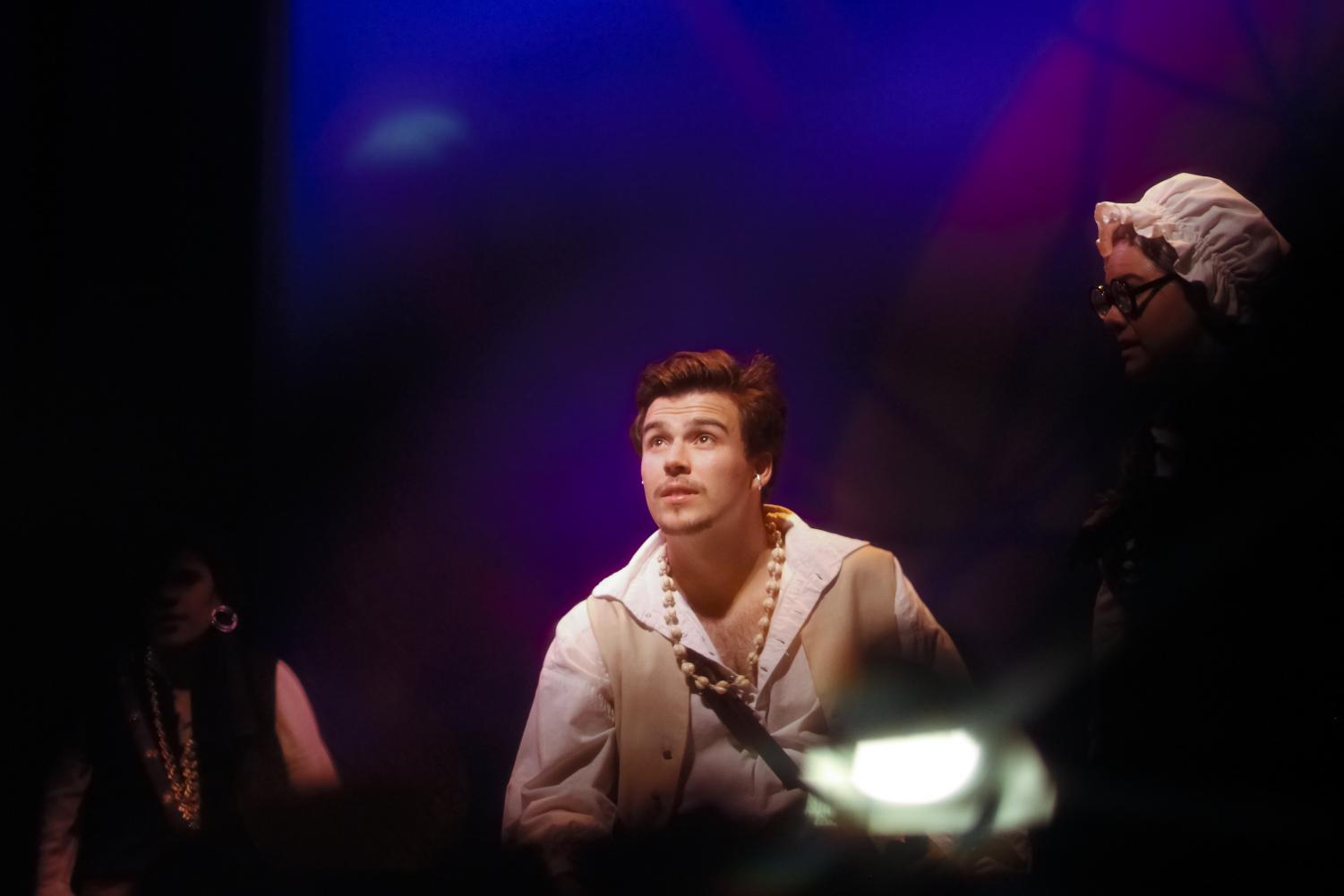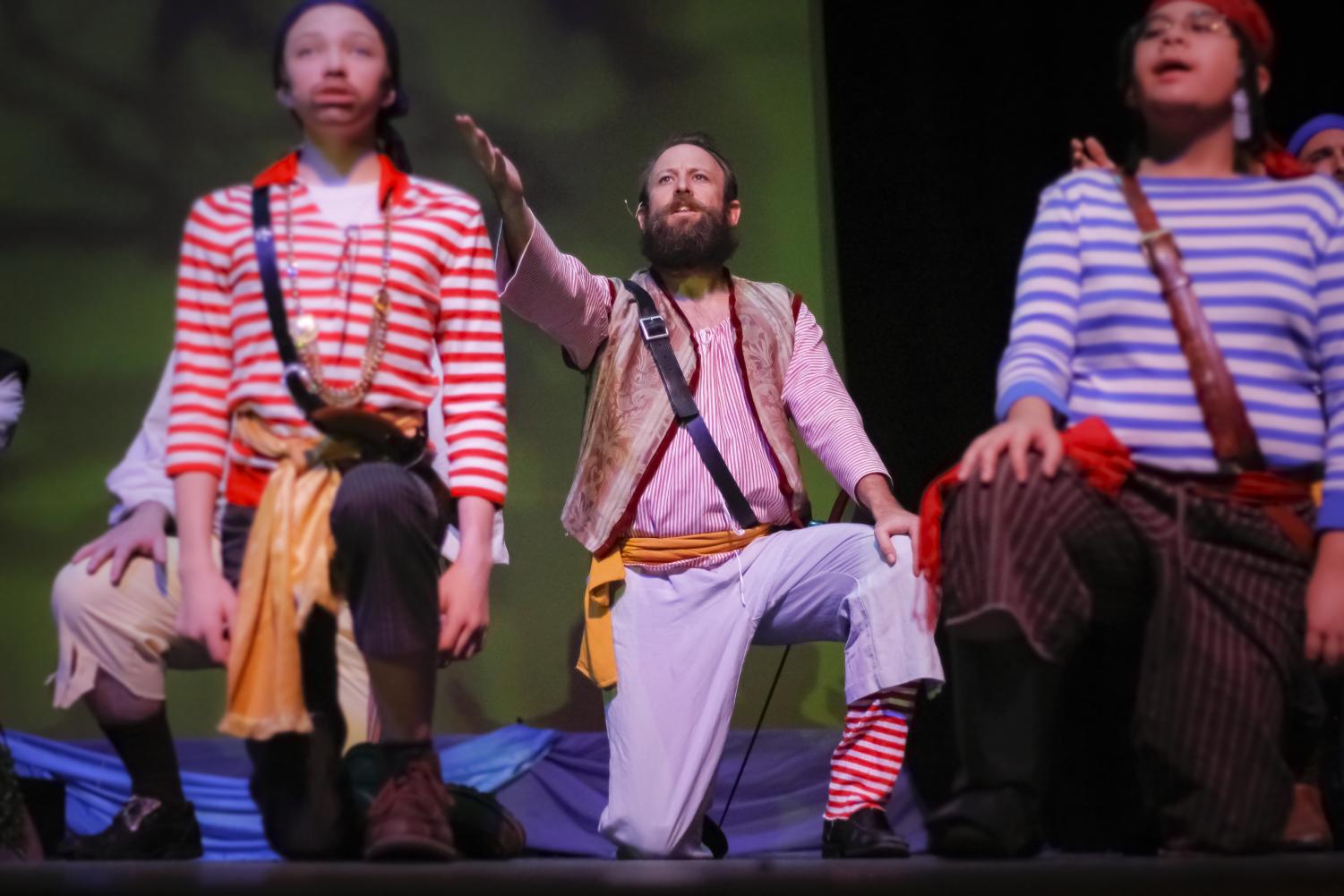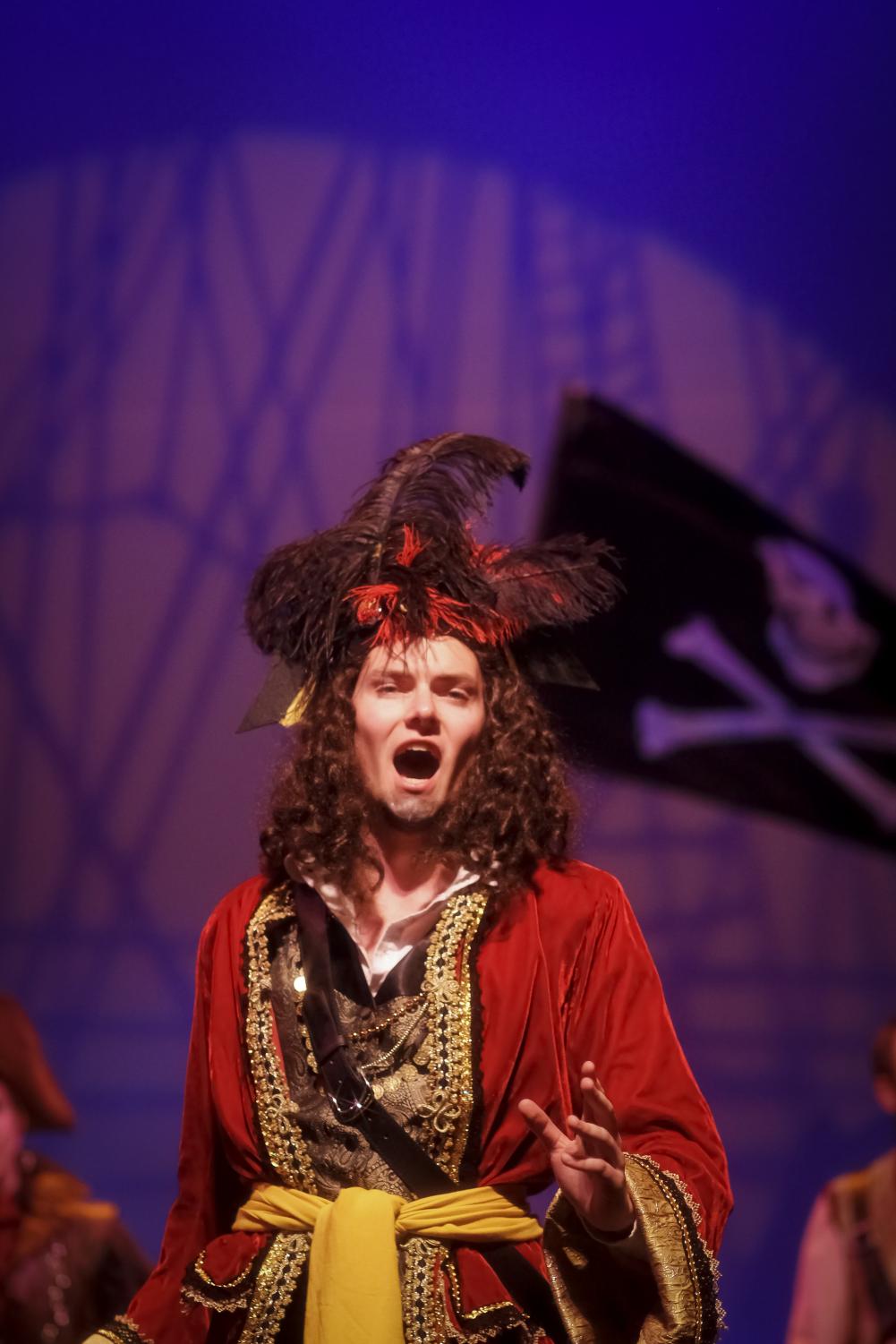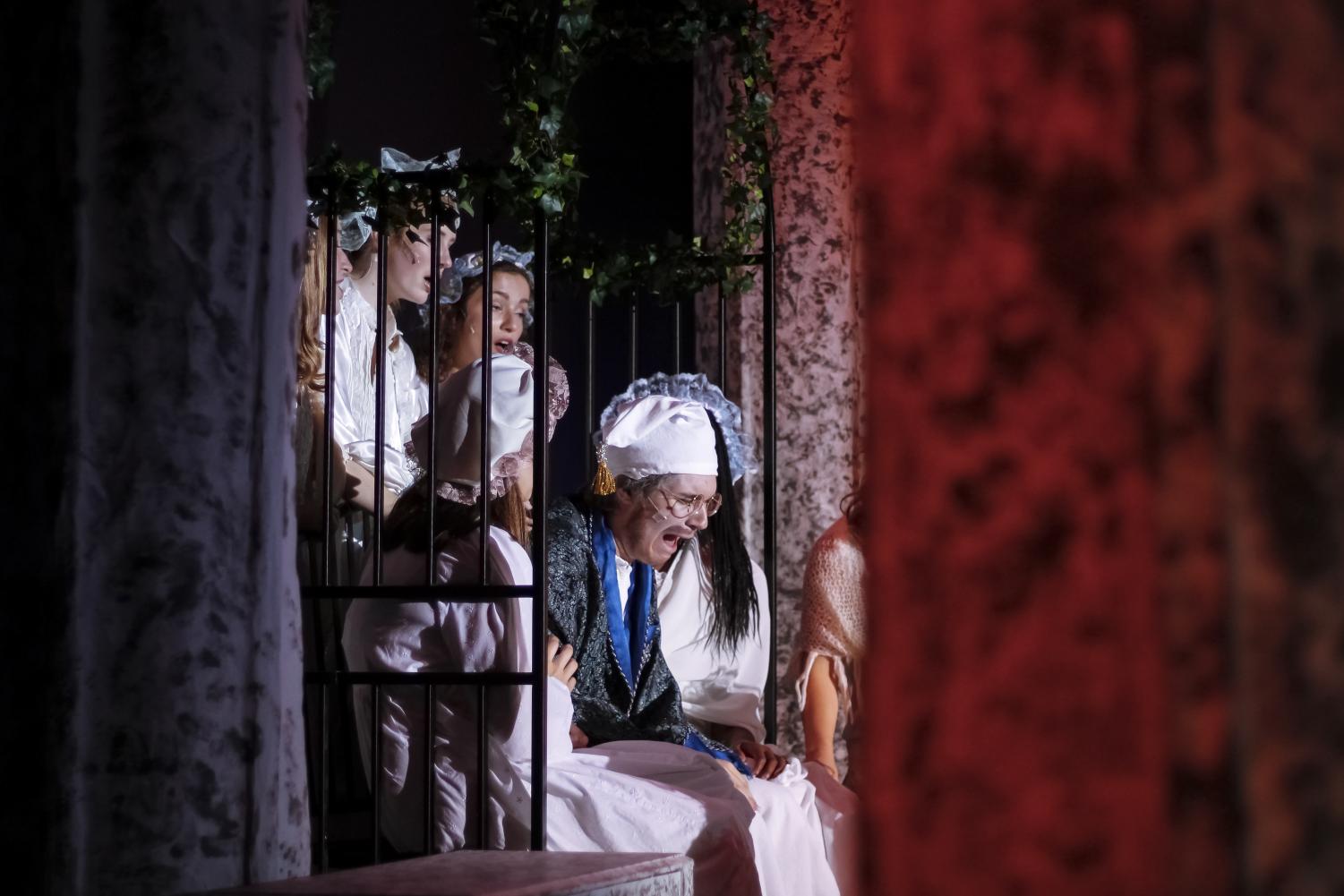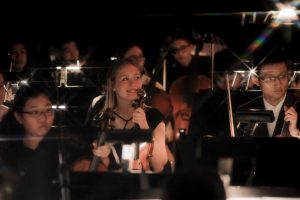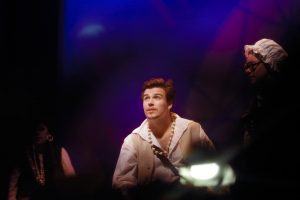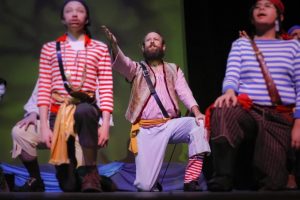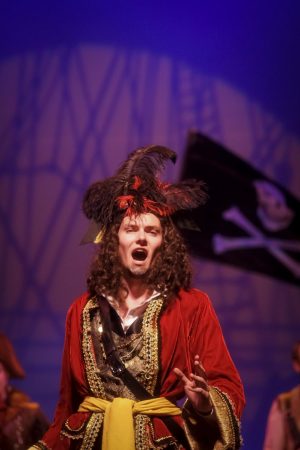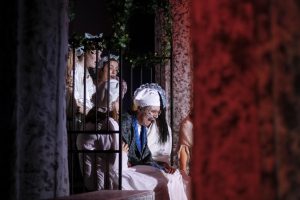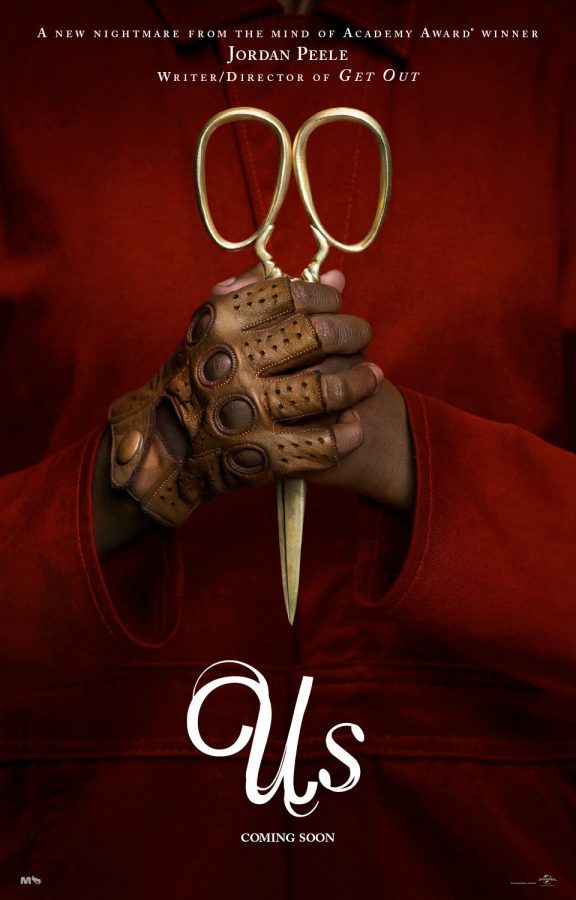A lighthearted story, dark humor that didn’t take itself too seriously, and fantastic music all made Pirates of Penzance one of the coolest and most well done theatrical productions hosted by Trinity in recent memory, and a spectacle I was glad to behold.
Taking place in Cornwall in England, the musical follows the tale of Frederic, a former indentured pirate who leaves to establish a life based around moral principles and to destroy his former pirate crew. Along the way, he must shake of the advances of his childhood nanny, stop the pirates from marrying the sisters of a girl he wants to marry, and come to grips with being indentured via a funny technicality, then later subverting his servitude.
The technical aspects of the musical were generally strongly executed, with a few issues which broke investment in the narrative. The costume design for the characters were all top notch even though they were a little cliche. One aspect which was a tad confusing was that while all of the costumes looked British, they had the appearance of all being from different time periods. The pirate costumes, for instance, all seemed to look like ones from the 17th and 18th centuries, which clashed poorly with the more modern, 20th century style outfits of Major General Stanley and the Beat Cops from the second act. The light system was good most of the time to. All of the spotlights were appropriate and the amount of light used in a scene never seemed out of place. The one time the lighting became a problem was during a song in the second act: the projector turned on and the background became one of a light blue screen with a pixelated word in the lower right-hand corner. Luckily, the background in the scene was the same color as the error screen, so the color wasn’t a problem, and none of the actors or actresses drew extra attention to it. The thing which disrupted immersion even more than that mistake was the constant reverb in the old microphones. In may high-pitched songs, there was a very noticeable presence of scratchy audio. In a musical like Pirates, where many of the songs are already fast and sung in British accents, trying to understand the lyrics through the rough sound system goes from difficult to impossible. For other deep-pitched songs through, the speakers were fine.
The musicians of Pirates brought an already great musical to a level of quality which could rival a university-level production. This hard work didn’t come easily either: all of the musicians in the Strings and Band departements had to attend at least two performances, and some like junior Daniel Contaldi had to go to all four.
“Attend all of the practices and performances was definitely fun and all, but my it was pretty stressful. Also, my back and shoulder would get wickedly sore from having to play for so long.” Said Contaldi.
Besides the instrumental artists, there was the Select Choir and other members of the Vocal Society which added a richness to the music, one that couldn’t be replicated by a CD or digital format. Again though, the reverb from the microphones soggied the experience.
While the Band, Orchestra and Choir brought an ambience which would have been difficult for any theatre group to live up to, the Trinity performers met the challenge (I saw the play on Saturday, which featured the same leads as the Thursday performance). The “Chorus of Pirates” as they are known in the program exuded an air of comedy and silliness, and really executed the needed slapstick to fulfill their roles to the utmost potential. The highlights of these cast members have to be the faculty members participating, being Brian Brown, Bill Milsten, William Sheard, and Kyle McGimsey. While during school hours these four may give off the air of being calm and collected, their stage performances were anything but. I especially remember the facial expressions Mr. Milsten pulled off during some of the comedic dance choreography, which all look transpired from a deer in the headlights. Leading this group was the Pirate King, played by Jonathan Gant. His bellowing voice and grand gesticulations established a perfect tone during the opening, which the rest of the play continued to keep.
The main character Fredric, was played to a ‘t by Liam O’Connor. One thing I thought was nuanced about his performance was the way he could play being cunning one hand and the next sound so naive without it seeming like a contradiction to his personnage. His nanny Ruth was played by Valerie Trapp. Her inflexion, dancing, and body language during the performance were all spot-on, and everybody cracked up the first time she started to caress Frederic’s hand (a motif she keeps throughout the musical).
The General’s Named Daughters included Mabel (the most important to the narrative, played by Delaney McLinden), Edith (Kylee Carter), Kate (Adede Appah-Sampong), and Isabel, who was played by English Teacher Loryn Eriksson. Besides these four, Kaley Frye, Eleanor Henderson, and Ashley Headrick all appeared as extra daughters. While all of these cast members had great chemistry with one another and pulled off the choreography, props especially go to Delaney’s talents as a vocalist. Her ability to hit high pitches and chords made her a great choice for the role, which was audible the first time she showed up on stage in character.
Major General Stanley was captured perfectly by Joshua Lefkowitz. Once again, Lefkowitz proves that age and experience are not all that is required of a great performer, capturing the attention of the audience with his talent to vocalize immense alliterative strands of verse in I Am The Very Model Of A Modern Major General (I get confused just reading the title), all the while maintaining his British accent. Not to mention, his knack for comedic timing and the production of sound effects came through in that song and throughout the rest of the musical to.
Lastly, the crew of Police Officers were silent but sprightly. Their boxish movements and imphish mannerisms were great in dance-form, and their collective deep voices matched well against Roland Spillman’s high pitched one. His role as the Sergeant was perfect, since he looked the most physically imposing out of them all (out of the eight members, he was the only one who was able to grow out a beard and forfeit wearing a groucho-mustache), which made the irony that he essentially convinces everybody to be as scared as they are all the better.
Overall, the Pirates of Penzance, while not without some technical flaws, had such a great combined energy and ambition from the Choir, Orchestra, and of course Theater members that any contrivances experienced reflect not on their behalf but the school. So while I congratulate their work, I would implore the school to invest in a new speaker system in all deliberate speed. Barring that, I encourage our artistic departments to keep sailing on the tide of excellence.




